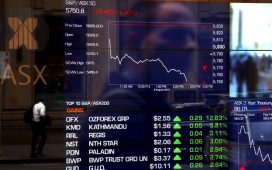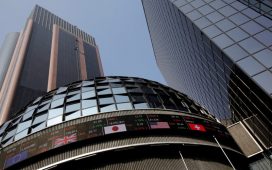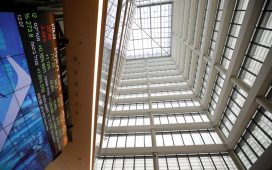Shein’s UK arm hits £1.5bn revenue mark, tax bill doubles
The UK arm of fast-fashion group Shein has achieved annual sales of over £1.5bn, as customers continue to flock to its bargain products.
Shein Distribution UK Limited has reported revenues of £1.55bn for 2023, up from £1.12bn in 2022, its latest financial results show.
With demand for Shein’s cheap sweaters, dresses and leggings remaining strong, the company made a pre-tax profit of £24.4m in the UK, twice the £12.2m it made in 2022, after reporting that a ‘cost of sales’ of £1.5bn for 2023.
It also paid twice as much tax – £5.7m, up from £2.35m in 2022.
Shein says its significant milestones in 2023 include opening pop-up shops around the UK, and a Manchester office.
Today’s results come as Shein prepares to hold informal meetings with investors ahead of a planned flotation on the London stock market.
Julian Dunkerton, the boss of SuperDry, has argued that Shein should be paying far more tax in the UK; it uses a loophole that excludes low-value items from import duty and VAT because they send individual items direct to shoppers from overseas.
Key events
Stocks have opened higher on Wall Street, after losses yesterday.
The S&P 500 share index is up 19 points in early trading at 5,715, a gain of 0.35%.
The tech-focused Nasdaq Composite has gained 0.6%, rising by 108 points to 18,032 points.
DOW JONES UP 128.53 POINTS, OR 0.31 PERCENT, AT 42,082.77 AFTER MARKET OPEN
S&P 500 UP 26.38 POINTS, OR 0.46 PERCENT, AT 5,722.32 AFTER MARKET OPEN
NASDAQ UP 90.43 POINTS, OR 0.50 PERCENT, AT 18,014.33 AFTER MARKET OPEN
— First Squawk (@FirstSquawk) October 8, 2024
Kathleen Brooks, research director at XTB, are showing a preference for mega cap stocks “as risk aversion bites”, adding:
Since the start of Q4, the S&P 500 has outperformed medium-sized companies on the Russell 2000 and it has also outperformed the Dow Jones.
Nvidia is higher by nearly 5% since the start of October, and futures markets are predicting a stronger open again on Tuesday. This is a trend that is worth watching. As interest rate expectations get recalibrated for the US and Fed rate cuts are priced out, this could hurt the broad stock market rally that we saw in Q3 as investors rush to the safety of mega cap stocks and their bullet proof balance sheets.
Today’s financial results show that Shein is already one of the country’s biggest e-commence players despite having only launched in the UK around a decade ago, the Evening Standard point out.
Full story: Shein doubles profits in UK after sales leap 40%

Sarah Butler
Shein, the online fast-fashion retailer founded in China, doubled profits at its UK arm last year as sales jumped nearly 40% to £1.5bn – making it about the same size as its rival Boohoo.
The company, which is considering a £50bn float on the London Stock Exchange, said pre-tax profits at Shein Distribution UK rose to £24.4m, on which it paid £5.7m in income tax, according to accounts filed at Companies House.
More here.
US trade deficit narrows
The US trade deficit has narrowed, thanks to a rise in exports and a drop in imports.
America’s goods and services deficit with the rest of the world fell by over 10% in August to $70.4bn, down from July’s $78.9bn.
Exports rose by 2% to $271.8bn, including an increase in sales of consumer goods, capital goods such as civilian aircraft and industrial machinery, and in services.
Imports dipped by 0.9% to $342.2bn, including a drop in industrial supplies and materials coming into the US, and fewer passenger cars.
🚢 The US trade deficit sharply declined to $70.4 billion in Aug thanks to a strong MoM increase in exports.
Exports to Canada and China both increased $1.1 billion, accounting for almost half of the Aug increase in exports.
Nonmonetary gold was the commodity with the single… https://t.co/8oE06b1IeY pic.twitter.com/Rwr3Nf2MVt
— MTS Insights (@MTSInsights) October 8, 2024
The US deficit with Canada almost halved – decreasing by $3.8bn to $3.9bn, while the deficit with China decreased by $2.6bn to $24.7bn.
US trade deficit narrows in August due to falling oil prices, rising merchandise exports & larger services surplus. More importantly the real dollar goods balance deficit from $97.2 billion to $88.6 billion. This should create the conditions for a greater than 3% print on the US… pic.twitter.com/z85cnZRmjK
— Joseph Brusuelas (@joebrusuelas) October 8, 2024
Mohamed El-Erian, advisor to Allianz and president of Queens’ College, Cambridge, argues that the rise in UK borrowing costs isn’t simply due to domestic issues.
He points out that the yield (rate of return) on US Treasury bills has also been rising in the last month, by “the same magnitude as the UK”.
El-Erian adds:
The US move up has been in response to a stronger-than-expected economy there. Moreover, UK yields have traditionally been more sensitive to US yields than has been the case for German and other Eurozone yields.
The bottom line is that both domestic and global developments impact UK yields. Focusing on only one can deliver too partial a picture.
There is an inclination to attribute the recent rise in yields on UK government bonds to, quoting today’s Financial Times, “concerns about the Labour government’s Budget, pushing the gap with Germany to the widest in more than a year.”
It is more complicated than that.
Just note… pic.twitter.com/GwIMeZCko6— Mohamed A. El-Erian (@elerianm) October 8, 2024
Downing Street: fiscal rule change won’t trigger Liz Truss-style meltdown
Over in Westminster, Downing Street has dismissed concerns that changing the fiscal rules in the Budget would trigger a Liz Truss-style meltdown, PA Media report.
Following the rise in UK borrowing costs in recent days (see opening post), Keir Starmer’s official spokesperson was asked if the the Chancellor was still committed to the borrowing rules she set out before the election.
Asked whether the Chancellor was still committed to the borrowing rules she set out before the election amid fears voiced by some bond market analysts that a change could unleash chaos similar to Ms Truss’s mini-budget, the Prime Minister’s official spokesman said:
“Well, I would obviously not accept that characterisation.”
The PM’s spokesperson explained that:
The Government has made clear that one of the first steps of this Government is to restore economic stability in the Budget. It will absolutely deliver on that, delivering on the robust fiscal rules that were set out in the manifesto.
“That includes moving the current Budget into balance, it includes debt falling as a share of the economy, and more broadly, as I say, the Budget will be about fixing the foundations of the economy, delivering stability, because it is only with economic stability that we will get the growth and investment that the economy needs.”
As covered earlier this morning, the gap between UK and German borrowing costs has hit its highest level in a year, amid speculation that Rachel Reeves might change the UK’s fiscal rules to allow more borrowing to fund investment.
Pressed on whether the current fiscal rules are set in stone, Number 10 said:
“The Government remains committed to the fiscal rules that were set out in the manifesto.”
Shein said the uplift in revenue and profit last year was “driven by strong consumer demand and loyalty across the UK”, the FT points out.
It added that it continued to invest in its “on-demand platform to provide more choice and better experience for customers”.
Pepsico cuts full-year outlook
Snacks and fizzy drinks company PepsiCo has cut its forecast for annual sales growth after missing Wall Street forecasts today.
PepsiCo posted a surprise drop in third-quarter sales, with net revenues falling to $23.3bn in its financial third quarter, down from $23.45bn a year earlier.
It has now trimmed its outlook for the year, and is forecasting a low-single-digit increase in organic revenue, down from a previous forecast of 4% organic revenue growth.
Revenues at Quaker Foods North America fell by 13%, after it recalled some granola bars and granola cereals listed below because they could be contaminated with Salmonella.
Pepsico’s chairman and CEO Ramon Laguarta says:
“Our businesses remained resilient in the third quarter, despite subdued category performance trends in North America, the continued impacts related to certain recalls at Quaker Foods North America and business disruptions due to rising geopolitical tensions in certain international markets.
Strong cost controls aided our profitability, as we made incremental investments to improve our marketplace competitiveness.”
Pepsi $PEP -1.3% pre-market
At ~$165, shares are at ~20x FY24E EPS ($8.15+)
Also ~22x FY23 EPS ($7.62)
DIvidend Yield is 3.3% ($1.355/Q)NB. $1.2bn Siete Food acquisition to close in FY25H1 pic.twitter.com/ME8hthNkXR
— Librarian Capital (@LibrarianCap) October 8, 2024
Aarin Chiekrie, equity analyst at Hargreaves Lansdown, says Pepsico is finding it harder to get customers to swallow price hikes.
Volumes of both food and drink were down this quarter, as consumers chose to leave blockbuster brands like Pepsi, 7up and Lays Crisps on the shelves. Recalls of certain Quaker Oats products, following concerns that they could be contaminated with salmonella bacteria, continue to weigh on performance.
And rising geopolitical tensions in certain international markets have also caused unwanted disruptions to operations.
Operating profits in the Africa, Middle East and South Asia region were down 17% in the quarter, and dropped by 28% at Quaker.
Shein’s UK arm hits £1.5bn revenue mark, tax bill doubles
The UK arm of fast-fashion group Shein has achieved annual sales of over £1.5bn, as customers continue to flock to its bargain products.
Shein Distribution UK Limited has reported revenues of £1.55bn for 2023, up from £1.12bn in 2022, its latest financial results show.
With demand for Shein’s cheap sweaters, dresses and leggings remaining strong, the company made a pre-tax profit of £24.4m in the UK, twice the £12.2m it made in 2022, after reporting that a ‘cost of sales’ of £1.5bn for 2023.
It also paid twice as much tax – £5.7m, up from £2.35m in 2022.
Shein says its significant milestones in 2023 include opening pop-up shops around the UK, and a Manchester office.
Today’s results come as Shein prepares to hold informal meetings with investors ahead of a planned flotation on the London stock market.
Julian Dunkerton, the boss of SuperDry, has argued that Shein should be paying far more tax in the UK; it uses a loophole that excludes low-value items from import duty and VAT because they send individual items direct to shoppers from overseas.
France: China’s brandy tariffs are unacceptable and break the rules
France’s government is not impressed that China is imposing temporary anti-dumping measures on brandy imports from the European Union (see earlier post).
French trade minister Sophie Primas has told Reuters that the measures are “unacceptable’, and breach international trade rules.
France plans to work with the EU to contest the move at the World Trade Organisation (WTO), she says.
Primas explains:
“This announcement seems to be a retaliatory measure following the (EU) Commission’s investigation into electric vehicles. Such a retaliatory measure would be unacceptable, and in total contradiction with international trade rules.”
Channel 4 revenues dive, but most execs take bonuses

Mark Sweney
State-owned, commercially funded broadcaster Channel 4 has reported the steepest fall in revenues in its 41-year history, but this hasn’t stopped bosses taking bonuses.
Channel 4 has reported a 10% year-on-year fall in total revenues to £1.02bn last year, down £120m compared with 2022, the steepest percentage fall in income in decades.
The broadcaster’s advertising revenue, on which it still relies for 80% of total income, fell by 9.6% from £1.25bn to £1.14bn in 2023, the worst proportionate slump since the advertising recession of 2009.
Channel 4’s latest annual report, published on Tuesday, showed that the corporation’s top executives – the chief executive, Alex Mahon, the chief operating officer, Jonathan Allan, and the chief content officer, Ian Katz – took home £2.15m in pay and bonuses last year.
This included Mahon and Allan accepting £375,000 in bonuses, despite the poor performance of Channel 4, while Katz – once of this parish – declined to accept an award of more than £100,000.
More here:
AI pioneers Hinton and Hopfield win Nobel physics prize
Over in Stockholm, the “Godfather of AI’, Geoffrey Hinton, has won the Nobel Prize for Physics.
British-Canadian computer scientist Hinton and fellow neural network pioneer John Hopfield have been recognised for their “foundational discoveries and inventions” that enable machine learning with artificial neural networks.
The Royal Swedish Academy of Sciences explain:
When we talk about artificial intelligence, we often mean machine learning using artificial neural networks. This technology was originally inspired by the structure of the brain. In an artificial neural network, the brain’s neurons are represented by nodes that have different values.
These nodes influence each other through connections that can be likened to synapses and which can be made stronger or weaker. The network is trained, for example by developing stronger connections between nodes with simultaneously high values. This year’s laureates have conducted important work with artificial neural networks from the 1980s onward.
Hopfield work on neural networks included creating an associative memory that can store and reconstruct images and other types of patterns in data.
Hinton’s research examines ways of using neural networks for machine learning, such as the backpropagation algorithm used to train multi-layer neural networks.
Last year Hinton quit Google, citing concerns over the flood of misinformation, the possibility for AI to upend the job market, and the “existential risk” posed by the creation of a true digital intelligence.











